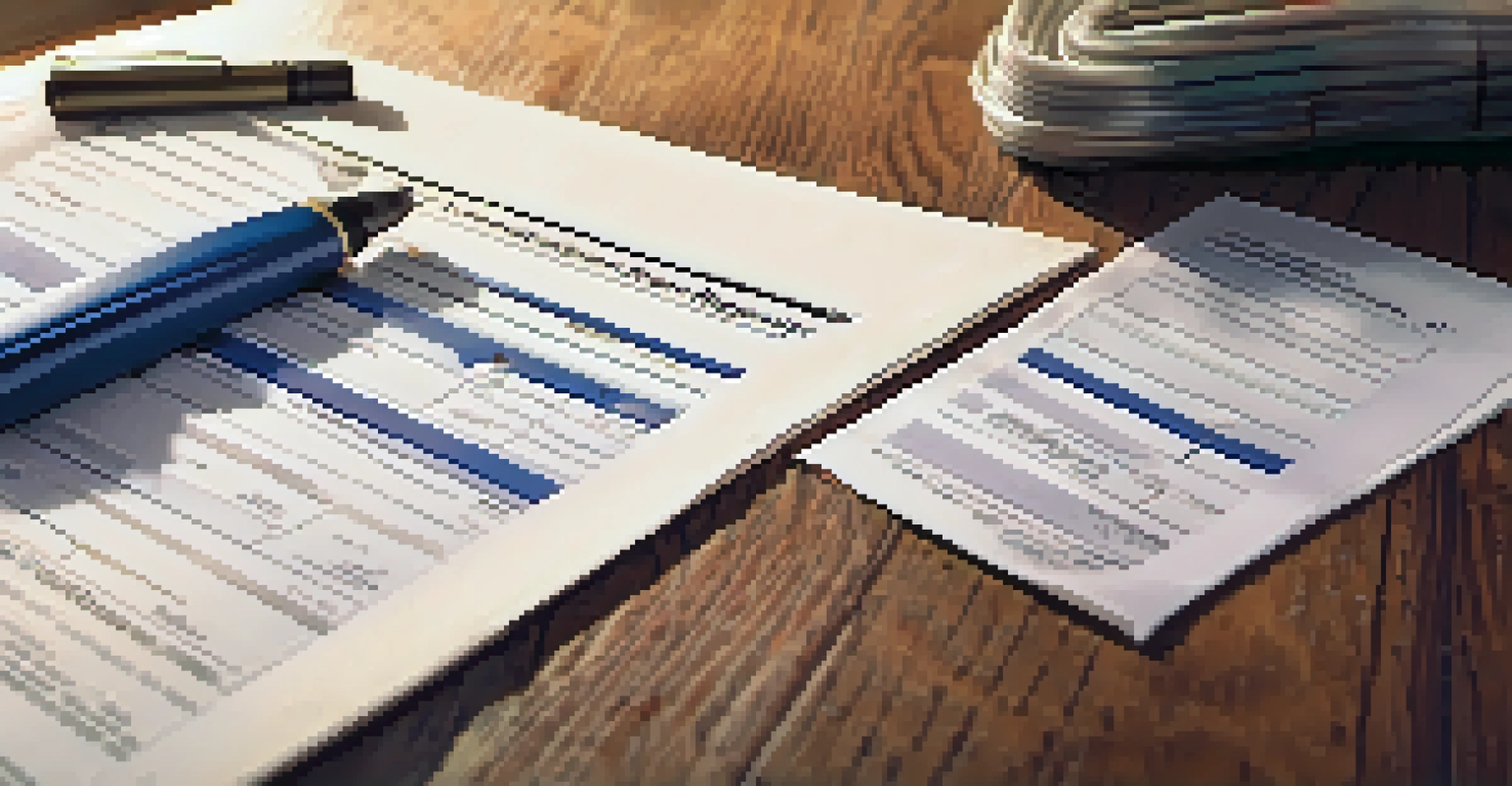Understanding Home Inspection Reports: A Comprehensive Guide

What is a Home Inspection Report and Why is it Important?
A home inspection report is a crucial document that provides an overview of a property's condition. It is typically generated after a professional inspector examines the home, looking for potential issues that may affect its value or safety. For buyers, understanding this report is vital as it can reveal hidden problems that could lead to costly repairs down the line.
An investment in knowledge pays the best interest.
The importance of the report extends beyond just identifying flaws; it can also empower you in negotiations. When you know the property's condition, you can make informed decisions, whether it's asking for repairs or adjusting your offer price. This knowledge is a key advantage in the buying process.
Furthermore, home inspection reports can serve as a guide for future maintenance. They often highlight areas that need regular attention, which can help homeowners plan and budget for upkeep. In essence, this report is not just a checklist; it's a roadmap to home ownership.
Key Components of a Home Inspection Report
Home inspection reports typically include various sections that cover different aspects of the home, such as structural components, systems, and appliances. These sections are designed to give you a comprehensive view of the property's condition. Common areas inspected include the roof, foundation, plumbing, electrical systems, and HVAC.

Each of these components is assessed for functionality and safety, often with notes on the inspector's findings. For example, the report may indicate that the roof is nearing the end of its lifespan or that the plumbing shows signs of leakage. Understanding these details helps you gauge the urgency of repairs.
Importance of Home Inspection Reports
Home inspection reports reveal a property's condition, helping buyers make informed decisions and negotiate effectively.
Additionally, many reports include photographs to illustrate specific issues. Visual aids can make it easier to comprehend the inspector's observations. This combination of written descriptions and images helps ensure that nothing is overlooked.
How to Read a Home Inspection Report
Reading a home inspection report can feel overwhelming at first, but breaking it down into sections makes it manageable. Start by familiarizing yourself with the layout. Look for clearly defined categories, such as major systems and minor issues, to help you navigate through the findings.
The bitterness of poor quality remains long after the sweetness of low price is forgotten.
Pay special attention to the summary section, which typically highlights the most critical issues. This part can give you a quick snapshot of the property's overall condition, helping you prioritize your next steps. Remember, not all findings are equally urgent; some may require immediate attention, while others may be more cosmetic.
As you review the details, don't hesitate to ask questions. If something isn't clear, reaching out to your inspector for clarification can provide valuable insights. This dialogue can enhance your understanding and help you feel more confident in your home-buying decisions.
Common Issues Found in Home Inspection Reports
Several common issues frequently appear in home inspection reports that potential buyers should be aware of. Some of the most prevalent problems include roof damage, plumbing leaks, and electrical system deficiencies. Understanding these issues can help you prepare for potential repairs or negotiations.
For instance, a leaky roof can lead to significant water damage if not addressed promptly, making it a high-priority concern. Similarly, outdated electrical systems may not meet current safety standards, posing a risk to you and your family. Being aware of these common pitfalls can save you time and money in the long run.
Key Areas to Inspect
Common inspection components include the roof, plumbing, and electrical systems, which are crucial for assessing safety and functionality.
Additionally, minor issues, such as cosmetic defects or aging appliances, can also appear. While these may not be deal-breakers, they can still affect your overall satisfaction with the home. Knowing what to expect can help you approach your home purchase with realistic expectations.
Negotiating Repairs Based on the Inspection Report
Once you've reviewed the home inspection report, you may find yourself in a position to negotiate repairs with the seller. If significant issues are identified, it's reasonable to request that the seller address these problems before closing the deal. This step can help you avoid unexpected expenses after the purchase.
In negotiations, it’s essential to be reasonable and prioritize the most critical repairs. While you might want everything fixed, focusing on major safety concerns or issues that could affect the home's value will make your requests more compelling. You can also consider asking for a price reduction instead of repairs, giving you the flexibility to handle issues at your own pace.
Ultimately, the goal is to reach an agreement that satisfies both parties. Open communication and a willingness to compromise can lead to a smoother negotiation process. Remember, the inspection report is a tool to help ensure that your new home meets your needs and expectations.
The Role of a Home Inspector in the Process
A home inspector plays a crucial role in the home-buying process, acting as your eyes and ears when assessing a property's condition. Their expertise allows them to identify potential issues that an untrained eye might miss. This professional insight is invaluable in making informed decisions about your purchase.
During the inspection, the inspector will typically walk you through the property, explaining their findings in real-time. This interactive approach can help you better understand the significance of any issues they uncover. Additionally, many inspectors are willing to provide tips on maintenance and repairs, which can be beneficial for first-time homeowners.
Ongoing Home Maintenance Tips
Post-inspection, regular maintenance based on the report can prevent costly repairs and enhance your home's value over time.
Choosing a qualified and experienced home inspector is essential. Look for professionals with positive reviews and relevant certifications to ensure you receive a thorough evaluation. A good inspector not only provides a detailed report but also acts as a trusted advisor throughout the home-buying journey.
Maintaining Your Home After the Inspection
Once you've moved into your new home, maintaining it becomes your responsibility. The home inspection report serves as a valuable reference point for ongoing upkeep. Regular maintenance can help prevent many issues from escalating into costly repairs, ensuring your home remains a safe and comfortable place.
Establishing a maintenance schedule can help you stay organized. For example, consider seasonal tasks like checking gutters, inspecting the roof, and servicing the HVAC system. These proactive measures can extend the life of your home's components and keep you informed about any emerging issues.

Moreover, keeping a record of repairs and maintenance can enhance your home's value over time. Potential buyers appreciate a well-maintained property, so documenting your efforts can pay off when it’s time to sell. Ultimately, a little attention goes a long way in preserving your investment.